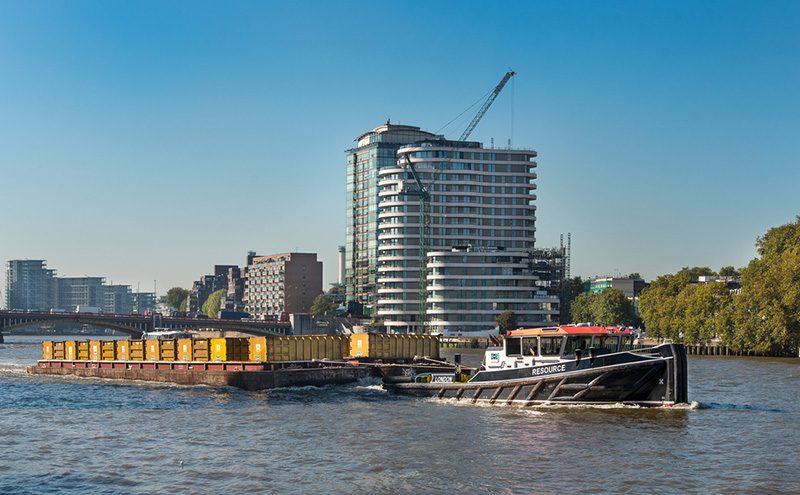
The London Assembly Environment Committee published a report, Waste: Energy from Waste on 15 February, which examines how the city could maximise the benefits of using EfW, and minimise its impact on the environment.
London sets fire to over half its waste. Two million tonnes of waste were sent to incinerators or Energy from Waste (EfW) facilities last year – more than doubling in the last decade.
Incineration at an EfW facility is the main alternative to landfill, and is deemed less wasteful because electricity and heat can be generated from the waste. But it obviously falls far short of the goal of extracting the maximum value from waste.
Levels of incineration show no signs of slowing down in the capital. The cost of incineration is a disincentive and along with export restrictions coming into force from China and the possible impact of Brexit, London needs to carefully consider how it will manage the amount of waste it generates, the report’s authors say.
In particular, urgent change is needed to stop recyclable and biodegradable material being incinerated.
The report found:
– Recyclable materials are unnecessarily going to incineration, including materials such as plastic that are potentially hazardous to health when burnt.
– London sends some of its waste abroad and to other parts of the UK.
– EfW plants do not sort recyclable waste as part of the process, as this is seen as the responsibility of residents, businesses and local authorities.
– Not all boroughs offer separate food waste collections, so food waste is being burnt, rather than going to environmentally friendly processes, such as anaerobic digestion.
– London needs to reduce the amount of waste being sent for incineration and burn less organic and plastic waste, as well as recyclable materials.
Leonie Cooper AM, Chair of the Environment Committee, said:
“We have got to get a grip on the amount of waste being sent to incineration. Burning recyclable and organic materials is wasteful and potentially harmful and as London is expected to grow, we urgently need to reduce the amount being sent for incineration and to separate out useful materials.
“Once these materials are burnt, they are lost forever and can’t be used within a circular economy.
“Incineration can no longer be relied upon to manage our waste effectively.
“Energy from Waste does have its benefits in generating heat and power, but, along with exporting waste elsewhere and sending waste to landfill, this should really be an option of last resort.”
Commenting on the report, Charlotte Morton, Chief Executive of the Anaerobic Digestion & Bioresources Association (ADBA), the trade body for the UK AD industry, said:
“Today’s report rightly recognises that burning waste not only contributes to London’s urgent air pollution crisis but also fails to extract maximum value from what we throw away. Local authorities sending waste to incineration currently have no incentive to encourage householders to separate their recycling, while introducing separate food waste collections would allow food waste to be properly recycled through AD, producing not only renewable heat and power and low-carbon transport fuel but also nutrient-rich biofertiliser, vital to restoring the UK’s depleted soils.
“This report only serves to strengthen the case for the UK Government to finally introduce mandatory separate food waste collections across England to emulate the success seen in Scotland, Wales, and Northern Ireland. The government has set itself a target of diverting all food waste from landfill by 2030, but it will find this target impossible to meet without separate food waste collections.”
The report completes the Environment Committee’s investigation into waste management, which got underway with previous reports: Waste: Household Recycling and Waste: The Circular Economy.





